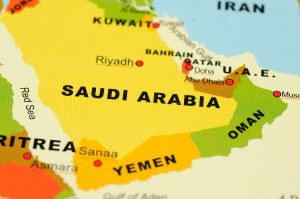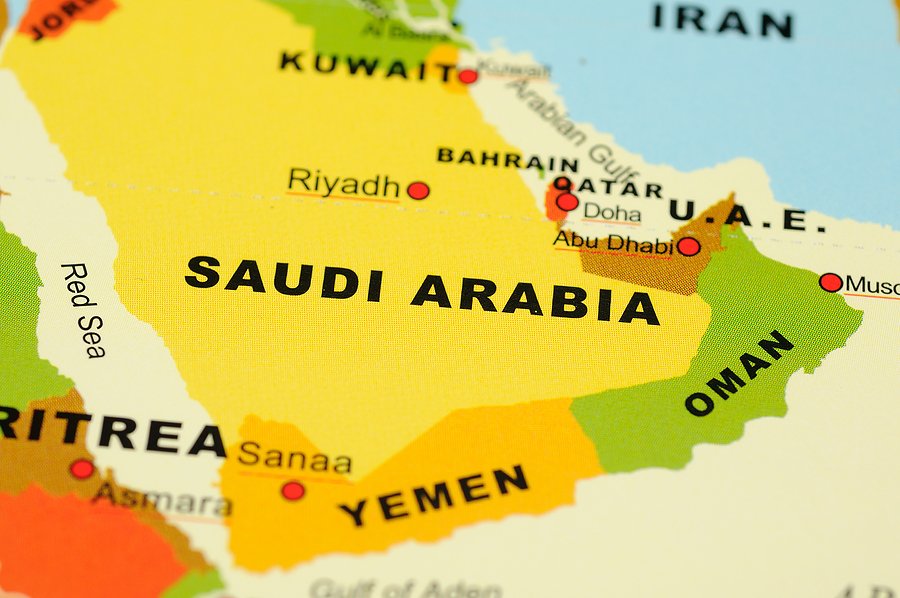2012-08-18 By Richard Weitz
The GCC governments generally defer to Saudi leadership regarding Iraq.
For years, the Saudi authorities have seen Iraqi Prime Minister al-Maliki as an Iranian agent, but it should not be forgotten that they also had poor relations with his predecessors, Ilyad Allawi and Ibrahim al-Jaafari, as well. Ties with Saddam Hussein were notoriously strained. This pattern makes evident that Saudi-Iraq differences reflect geopolitical tensions and rivalries more than sectarian ones, though in practice these often overlap, in Iraq and elsewhere.
As the GCC’s largest territorial member and the world’s largest exporter of petroleum, Saudi Arabia remains Iraq’s main Arab rival in the Gulf. But with a small population and a weak military compared to Iraq and Iran, the Saudis have had to use their oil resources and other wealth to induce external balancers, in particular the United States in recent decades, to intervene on their behalf.
Saudi-Iraq relations have been especially frigid since Saddam’s 1990 invasion of Kuwait.
After completely severing diplomatic ties at the time, Saudi Arabia refrained from re-establishing diplomatic relations with Iraq even after Saddam’s removal in 2003 led three other GCC members—Kuwait, Bahrain, and the United Arab Emirates—to join Egypt and other Arab governments in restoring their diplomatic missions.

But this strategy of stirring up sectarian tensions to mobilize domestic and international opposition to Tehran and Iranian-supported foreign regimes is risky. And differences over Syria have introduced a new source of acute and protracted tension in the Iraq-Saudi relationship. Credit Image: Bigstock
The Saudi government opposed the Anglo-American invasion of 2003 for fear that Saddam’s removal would open the way for Shiite and Iranian domination of Iraq. Saudi criticism of U.S. policies in Iraq continued during the occupation. Many Saudi elites assessed U.S. policy as effectively transferring power in Iraq from a Sunni elite to a Shiite-dominated and Iranian-controlled government. In September 2005, Saudi Arabian Foreign Minister Saud Al Faisal complained to the U.S. Council of Foreign Relations that the United States was “handing the whole country over to Iran without reason,” adding that, “It seems out of this world that you do this. We fought a war to keep Iran from occupying Iraq after Iraq was driven out of Kuwait.”
Saudi officials have ignored Maliki’s entreaties for better relations. Although Iraq inaugurated a new embassy in Riyadh in 2007, Saudi diplomats only received Iraqi diplomats as private individuals. They also prohibited direct air flights between Baghdad and Riyadh or direct trade across the 500-mile border, which the Saudi government has sought to seal off by building a fence with various security enhancements.
In 2010, Saudi officials, reacting to Iranian efforts to keep a friendly Shiite-dominated government under Maliki’s leadership in power in Baghdad, made a comprehensive attempt to induce Iraqi leaders to form a coalition government that would exclude Maliki. They briefly allowed direct flights and commercial contacts with Iraq and tried to win over more allies by indicating considerable Saudi investment in Iraq would follow a change in the Iraqi government.
But after Maliki managed, following Iranian intervention on his behalf, to outmaneuver his rivals and retain the prime minister post, the Saudis resumed their passive policy of having little to do with the Maliki government.
The Saudi leaders see themselves engaged in a Cold War with Tehran for regional influence, so Shiite actors in Iraq, Bahrain, etc., are often perceived and treated as Iranian proxies.
To mobilize public support for their position, the Saudi authorities sometimes allow the conflict with Iran to be characterized in sectarian terms, as a struggle between Sunnis and Shiites over which interpretation of Islam should dominate the region’s politics. Saudi policy has proven effective at increasing Sunni opposition to the pro-Iranian regime in Syria as well as Iraq, but the demographics are more favorable for Saudi goals in Syria.
This strategy of stirring up sectarian tensions to mobilize domestic and international opposition to Tehran and Iranian-supported foreign regimes is risky.
For Saudi Arabia, it can further alienate the country’s own Shiite minority, whose two million members constitute some ten percent of the Saudi population and are concentrated near Saudi Arabia’s eastern oil fields. The divisive strategy could also legitimize Sunni extremism, a problem that the authorities have fought hard against since 9/11. It can have a similar effect at the international level, with Salafists again aroused against Western governments and their local allies and interests.
Saudi Arabia’s failure to develop a constituency among Iraqi Shiites or even Kurds deprives them of much influence in Iraq beyond their Sunni constituents. Saudi influence has also been limited by the passive nature of Saudi policy, which often manifests itself in a negative agenda of what Riyadh opposes rather than supports.
To discourage a U.S. military withdrawal from Iraq, prominent Saudis sometimes warned the Bush administration that Saudi Arabia might decide to send its own forces to Iraq to protect the Sunnis there.
Such a contingency is implausible, but the Saudi government or other Saudi actors certainly have the means and the motive to provide weapons and money to Iraqi Sunni militia and related groups. Indeed, a small number of Saudis have engaged in these activities independent of their government since the Iraq insurgency began, aiding forces that were fighting local Shiites as well as the Western occupation forces.
Although the Saudi government has discouraged such involvement through various means, including by building a security fence along the Saudi-Iraq border, extremist groups have been able to recruit some fighters and donors with anti-Western, anti-Shiite propaganda and send that aid to Iraq through Syria and other means. The initial jihad might have been directed against the Western occupiers, but it soon was redirected against Iraq’s newly empower Shiite majority.
American efforts to persuade the Saudis that eschewing contact with al-Maliki’s government is counterproductive since it deprived them of a means to counter Iranian influence in Baghdad has only recently met with much understanding in Riyadh.
As soon as all U.S. combat forces left Iraq in mid-December 2011, the Saudis told the chairman of the Joint Chiefs of Staff, Army Gen. Martin E. Dempsey, that the Pentagon’s departure “opens the door for greater Iranian influence.”
On the one hand, the withdrawal accompanied by the stagnation of Iraqi-U.S. ties since then, probably has helped dissuade periodic Saudi worries that Washington saw Baghdad rather than Riyadh as its main partner in Gulf affairs. On the other hand, Saudi officials, among others, were unnerved by the U.S. decision to abandon long-time U.S. ally Hosni Mubarak in 2011 and instead accept the advent of a Muslim Brotherhood-led government in Egypt. They have accordingly continued to develop security ties with China, Pakistan, and other potential partners.
Given this new situation in 2012, Saudi Arabia has undertaken modest efforts to normalize relations with the Iraqi government. On February 21, 2012, Fahd Abdul Mohsen al-Zaid, the Saudi ambassador to Jordan, was also assigned as the first Saudi ambassador to Iraq in more than twenty years. Although his residence remained in Jordan, Foreign Minister Hoshyar Zebari, and Prime Minister al-Maliki described the move as a positive act. On March 15, 2012, Iraq and Saudi Arabia formally signed an agreement to include an exchange and sharing of security information, enhancing border security, and combating terrorism through cooperation. This agreement was followed days later with a deal to exchange and repatriate prisoners between the two countries, including those convicted of terrorist activities, in a move the Saudi Justice Ministry cited as “in the interest of strengthening friendship and cooperation between the two nations.”
Unfortunately, differences over Syria have introduced a new source of acute and protracted tension in the Iraq-Saudi relationship.
At times, Maliki has sharply criticized the Saudis for providing arms and other assistance to the Syrian insurgents.
If these tensions can be managed, the next step in Saudi-Iraq reconciliation could be a Saudi decision to allow Iraq to resume exporting oil through the 1.65 million barrel-per-day Iraqi Oil Pipeline through Saudi Arabia (IOPSA), which runs east to west through Saudi territory. Iraqis constructed the pipeline in the 1980s, but Saudi Arabia closed it after Iraq invaded Kuwait in 1990.
Saudi authorities expropriated the conduit in 2002, claiming that Iraq had not paid its transit fees, and then began using it to move Saudi natural gas to power plants in western Saudi Arabia. The Iraqi government would like to resume using the pipeline. Iraqi plans to raise its oil exports in coming years would benefit from having access to the IOPSA given the limited capacity of existing export routes. Most Iraqi oil exports now travel by tankers that traverse the Strait of Hormuz, which Iran has periodically threatened to close and is already heavily congested.
Looking forward, Saudi Arabia might be willing to join some other Arab states and forgive or reduce Iraq’s bilateral debt.
Saudi Arabia lent Saddam Hussein’s Iraq some $20 billion to support its war against Iran. The Saudis’ loan might be seen as Riyadh’s contribution to the common war aim of preventing the new Islamic Republic from spreading its revolutionary Shiite views throughout the Persian Gulf.
In any case, Iraqis have been in no position to repay the debt. Saudi officials have indicated that they might forgive some or all of the debt, but only after Maliki is no longer Iraq’s prime minister.


